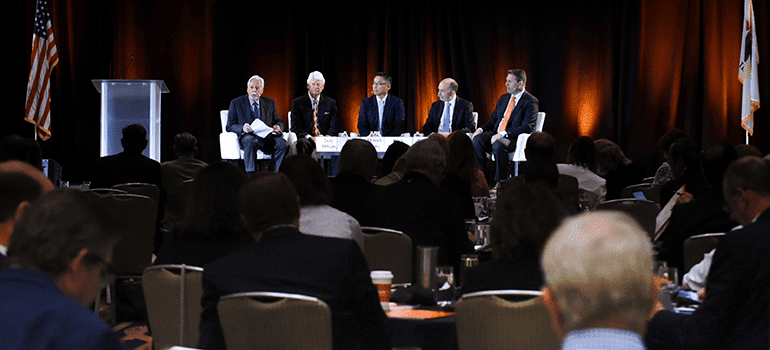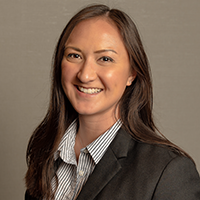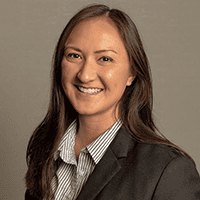
The Most Effective Bank Directors Share These Two Qualities
 Banks have a slim margin for error.
Banks have a slim margin for error.
They typically borrow $10 for every $1 of equity, which can amplify any missteps or oversight. Robust oversight by a board of directors, and in particular the audit and risk committees, is key to the success of any institution.
“At the Federal Reserve Bank of Kansas City, we have consistently found a strong correlation between overall bank health and the level of director engagement,” wrote Kansas City Fed President Esther George in the agency’s governance manual, “Basics for Bank Directors.” “Generally, we have seen that the institutions that are well run and have fewer problems are under the oversight of an engaged and well-informed board of directors.”
This may sound trite, but the strongest bank boards embrace a collective sense of curiosity and cognitive diversity, according to executives and directors at Bank Director’s 2019 Bank Audit & Risk Committees Conference in Chicago.
Balancing revenue generation against risk management requires a bank’s audit and risk committees to invite skepticism, foster intelligent discussion and create a space for constructive disagreements. Institutions also need to remain abreast of emerging risks and changes that impact operations and strategy.
This is why curiosity, in particular, is so important.
“It’s critical for audit committee members to have curiosity and a critical mind,” says Sal Inserra, a partner at Crowe LLP. “You need to ask the tough questions. The worst thing is a silent audit committee meeting. It’s important to be inquisitive and have a sense of curiosity.”
Board members who are intellectually curious can provide credible challenges to management, agrees John Erickson, a director at Bank of Hawaii Corp.
Focusing on intellectual curiosity, as opposed to a set of concrete skills, can also broaden the pool of individuals that are qualified to sit on a bank’s audit and risk committees. These committees have traditionally been the domain of certified public accountants, but a significant portion of audit committee members in attendance at the conference were not CPAs.
Robert Glaser, the audit committee chair at Five Star Bank, sees that diversity of experience as an advantage for banks. He and several others say a diversity of experiences, or cognitive diversity, invites and cultivates diversity of thought. These members should be unafraid to bring their questions and perspectives to meetings.
Having non-CPAs on the audit committee of Pacific Premier Bancorp has helped the firm manage the variety of risks it faces, says Derrick Hong, chief audit executive at Pacific Premier. The audit committee chair is a CPA, but the bank has found it “very helpful” to have non-CPAs on the committee as well, he says.
Audit and risk committee members with diverse experiences can also balance the traditional perspective of the CPA-types.
“It’s important [for audit committee members] to have balance. Bean counters don’t know everything,” says Paul Ward, chief risk officer at Community Bank System, who self-identifies as a “bean counter.”
“Some of the best questions I’ve seen [from audit committee members] have come from non-CPAs,” Ward says.
However, banks interested in cultivating intellectual curiosity and cognitive diversity in their audit and risk committees still need to identify board members with an appreciation for financial statements, and the work that goes into crafting them. After all, the audit committee helps protect the financial integrity of a bank through internal controls and reporting, not just reviewing financial statements before they are released.
Executives and board chairs also say that audit and risk committee members need to be dynamic and focus on how changes inside and outside the bank can alter its risk profile. Intellectual curiosity can help banks remain focused on these changes and resist the urge to become complicit.
I’ll be the first to admit that qualities like curiosity and cognitive diversity sound cliché. But just because something sounds cliché, doesn’t mean it isn’t also true.



